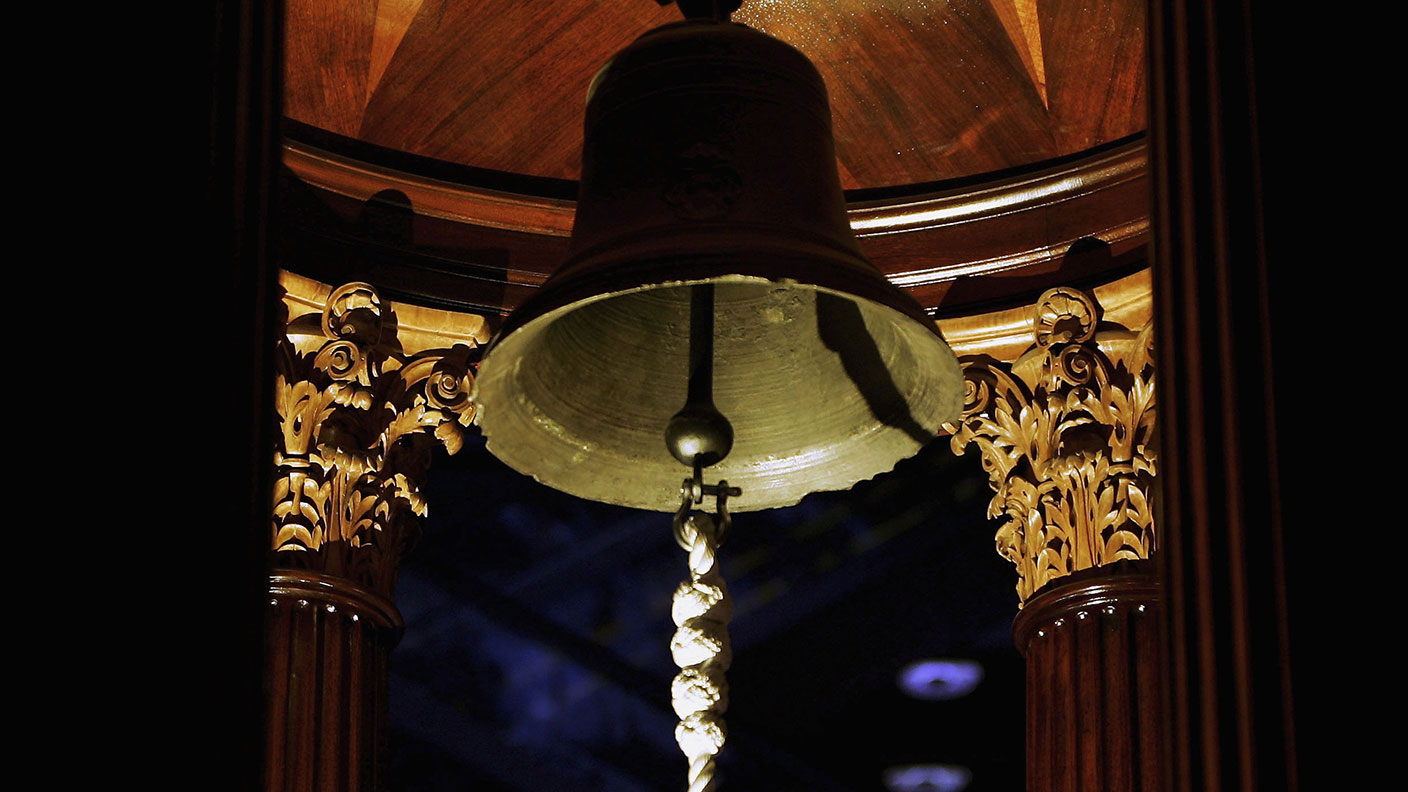9 October 1799: HMS Lutine sinks with a fortune in bullion
On this day in 1799 the frigate HMS Lutine sank off the Dutch coast. It was en route to Hamburg with a fortune in gold and silver bullion.


Get the latest financial news, insights and expert analysis from our award-winning MoneyWeek team, to help you understand what really matters when it comes to your finances.
You are now subscribed
Your newsletter sign-up was successful
Want to add more newsletters?

Twice daily
MoneyWeek
Get the latest financial news, insights and expert analysis from our award-winning MoneyWeek team, to help you understand what really matters when it comes to your finances.

Four times a week
Look After My Bills
Sign up to our free money-saving newsletter, filled with the latest news and expert advice to help you find the best tips and deals for managing your bills. Start saving today!
Hamburg, a long-standing member of the Hanseatic trading league, was on the point of collapse in 1799. The merchants in the City of London held a whip-round and dispatched HMS Lutine with a fortune in gold and silver bullion to the rescue. The ship, however, never arrived.
La Lutine had been a Magicienne-class frigate in the French navy, launched 20 years earlier. But rather than have it fall into republican hands during the French Revolution, royalists handed it to the Royal Navy in 1793, and it became HMS Lutine.
As the frigate passed the Netherlands on 9 October, 1799, a storm blew up and she foundered off the West Frisian Islands with the loss of 269 lives one person survived. Two weeks after the disaster, Lloyd's of London paid out on the claim in full.
MoneyWeek
Subscribe to MoneyWeek today and get your first six magazine issues absolutely FREE

Sign up to Money Morning
Don't miss the latest investment and personal finances news, market analysis, plus money-saving tips with our free twice-daily newsletter
Don't miss the latest investment and personal finances news, market analysis, plus money-saving tips with our free twice-daily newsletter
Nobody knows for sure how much the bullion was worth. The records Lloyd's kept were destroyed in a fire, but it's thought the gold and silver was worth in the region of £1m around £100m today.
But in 1799, Britain was at war with the Netherlands; the Dutch claimed the wreck as its prize. In 1823 it granted Pierre Eschauzier a licence to recover the treasure. Lloyd's protested to the British government, and the share of the licence retained by the Dutch government was transferred to London.
In 1858, the ship's bell was retrieved, and today it hangs in Lloyd's underwriting room.
Whenever news came in of a ship that was overdue, the Lutine bell would be rung once for bad news, two for good. This was so the underwriters and brokers who had an interest in the ship's return received the news at the same time.
Today, the bulk of the gold and silver is thought to remain in the sea. So, if you ever find yourself on the island of Vlieland, keep an eye out for anything that glimmers in the water. Lloyd's of London would probably be interested to know about it.
Get the latest financial news, insights and expert analysis from our award-winning MoneyWeek team, to help you understand what really matters when it comes to your finances.

-
 Should you buy an active ETF?
Should you buy an active ETF?ETFs are often mischaracterised as passive products, but they can be a convenient way to add active management to your portfolio
-
 Power up your pension before 5 April – easy ways to save before the tax year end
Power up your pension before 5 April – easy ways to save before the tax year endWith the end of the tax year looming, pension savers currently have a window to review and maximise what’s going into their retirement funds – we look at how
-
 31 August 1957: the Federation of Malaya declares independence from the UK
31 August 1957: the Federation of Malaya declares independence from the UKFeatures On this day in 1957, after ten years of preparation, the Federation of Malaya became an independent nation.
-
 13 April 1960: the first satellite navigation system is launched
13 April 1960: the first satellite navigation system is launchedFeatures On this day in 1960, Nasa sent the Transit 1B satellite into orbit to provide positioning for the US Navy’s fleet of Polaris ballistic missile submarines.
-
 9 April 1838: National Gallery opens in Trafalgar Square
9 April 1838: National Gallery opens in Trafalgar SquareFeatures On this day in 1838, William Wilkins’ new National Gallery building in Trafalgar Square opened to the public.
-
3 March 1962: British Antarctic Territory is created
Features On this day in 1962, Britain formed the British Antarctic Territory administered from the Falkland Islands.
-
10 March 2000: the dotcom bubble peaks
Features Tech mania fanned by the dawning of the internet age inflated the dotcom bubble to maximum extent, on this day in 2000.
-
9 March 1776: Adam Smith publishes 'The Wealth of Nations'
Features On this day in 1776, Adam Smith, the “father of modern economics”, published his hugely influential book The Wealth of Nations.
-
 8 March 1817: the New York Stock Exchange is formed
8 March 1817: the New York Stock Exchange is formedFeatures On this day in 1817, a group of brokers moved out of a New York coffee house to form what would become the biggest stock exchange in the world.
-
7 March 1969: Queen Elizabeth II officially opens the Victoria Line
Features On this day in 1969, Queen Elizabeth II took only her second trip on the tube to officially open the underground’s newest line – the Victoria Line.